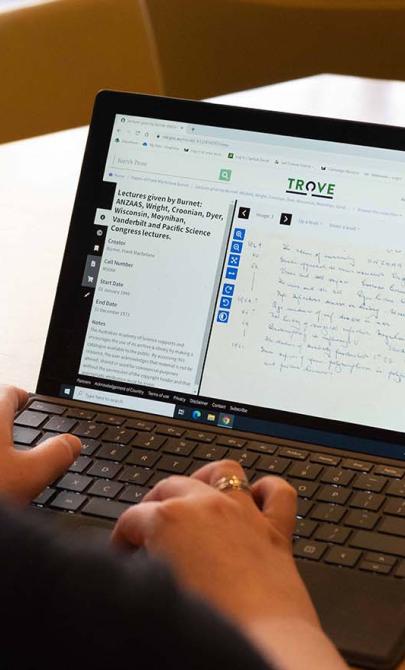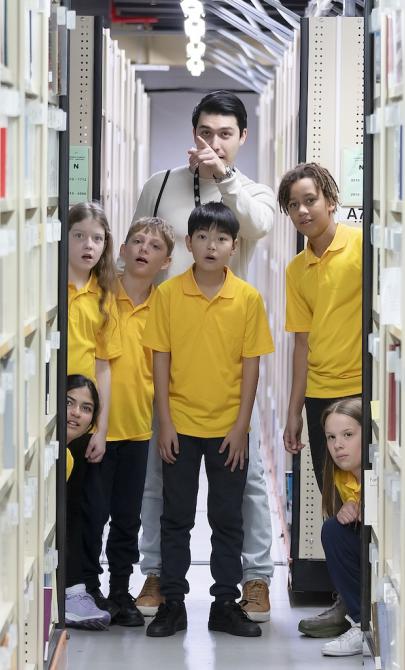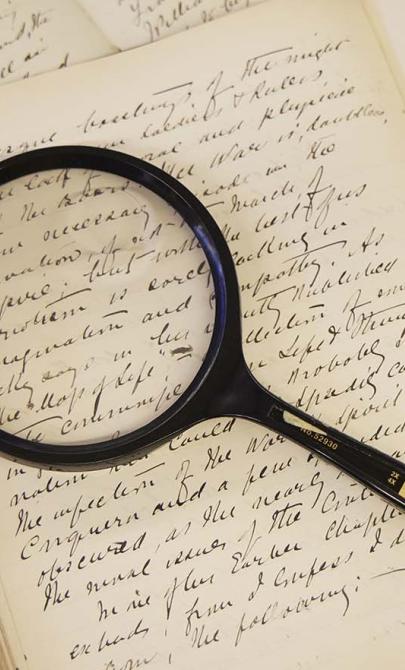Sport and Australian culture
About this module
This module draws on the Library’s collections to examine how sport in Australia has been shaped by the Commonwealth Games, migration, the media, and the involvement of women, para-athletes, and Aboriginal and Torres Strait Islander people.
This resource was supported by Optus in association with its sponsorship of the Gold Coast 2018 XXI Commonwealth Games.
Copyright for teachers
You can download all collection materials in this resource for education purposes. For more information, go to copyright for teachers.
Digital Classroom: Sport and Australian Culture
Topics in this module
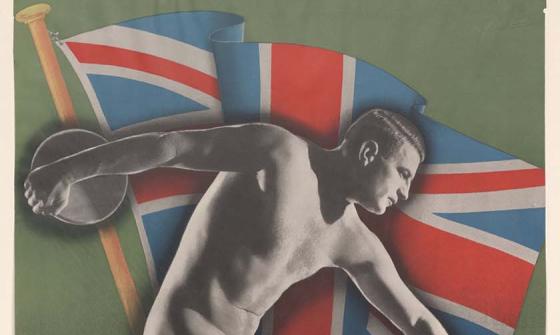
Australian National Travel Association, Australia's 150th Anniversary celebrations, Sydney, 1938 : British Empire Games 5-12 Feb. 1938, nla.gov.au/nla.obj-135690109
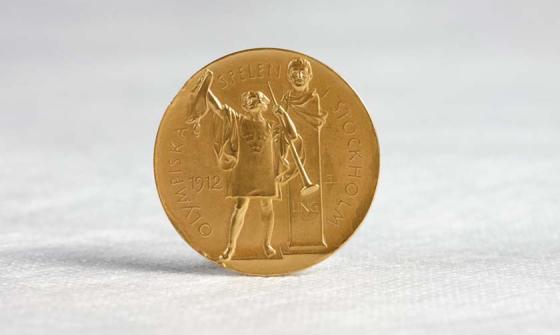
Olympic gold medal won by Miss Fanny Durack at Stockholm, 1912, nla.gov.au/nla.obj-139311257
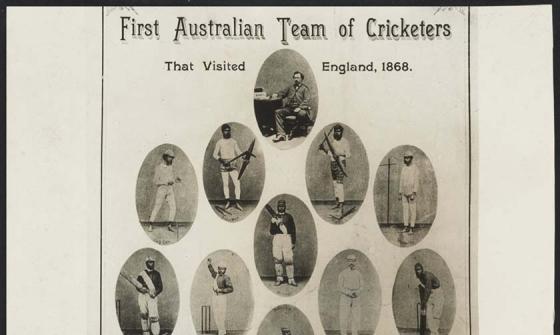
Photoline Printing Co., First Australian team of cricketers that visited England, 1868, nla.gov.au/nla.obj-141855333
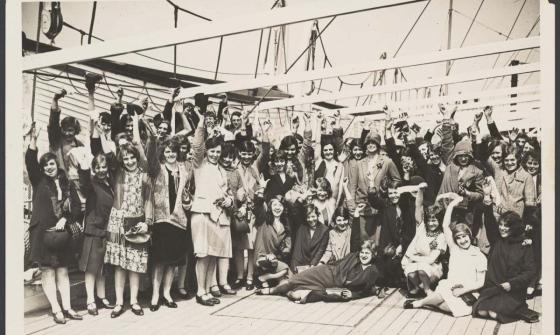
London News Agency Photos Ltd, British women migrants aboard passenger ship, London, ca. 1920s, https://nla.gov.au/nla.obj-138115134
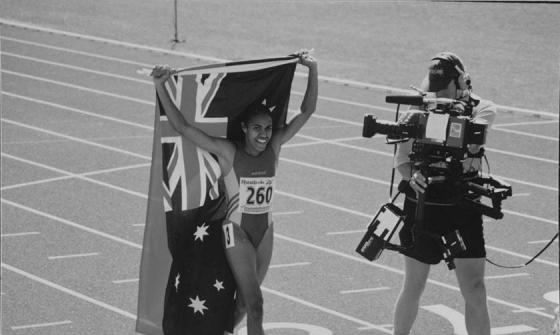
Melanie Louise Collins, Cathy Freeman, Commonwealth Games, Victoria, British Columbia, Canada, 1994, nla.gov.au/nla.obj-145960092
Introductory activities
Activity 1: Survey
Have students share whether they play a sport, watch sport on TV, or both. Chart the results to identify trends in participation and interest.
- Which sports are most popular?
- Are there any unique or less common sports?
- How many students watch but don’t play, or play but don’t watch?
Activity 2: Demonstrate
Ask students to teach a sport to the class. They can demonstrate a sport they know or research a new one.
- Outline basic rules.
- Demonstrate skills.
- Give others a chance to try.
Activity 3: Create
Research a major sporting event, such as the FIFA World Cup or AFL season. Explore how teams are matched fairly.
- How are draws organised?
- What are the pros and cons of different formats?
- Test systems using a simple game like rock, paper, scissors.
Concluding activities
Activity 4: Fair for all
Large sporting events like the Commonwealth Games or the Olympics promote accessibility and equality for all players involved.
Have students play a game that involves the whole group and is known to the whole class (Dodgeball, Freeze Tag, Octopus Tag, etc.). After playing, have students debrief on the game:
- How actively was everyone involved?
- Were people doing nothing for long periods?
- Was anyone at a disadvantage?
Based on this discussion, modify the game to ensure that all players:
- have equal share of the play
- can participate safely
- have turns at playing different positions.
Discuss: Did the game allow individuals to be more involved? How did greater involvement make individuals feel?
Activity 5: Make a pitch
Have students identify a sport that they play or like that is not part of the Commonwealth or Olympic Games. Have students create a campaign or sales pitch as to why their chosen sport should be allowed into the games. Ask them to research and/or think about:
- How are games selected?
- What sports are allowed in the games?
- Would their sport be practical to host?
- Has it ever been included in the games?
- What might be some reasons it's not part of the games line-up?
- Who would they have to campaign to have their sport recognised (IOC, AOC, Commonwealth Games Federation, etc.)?
Students could present their campaign as a flyer, poster, digital art or oral presentation. The class could vote or decide on one of the sports based on the presentations/campaigns created. Play that sport (if possible).
Activity 6: Track record
Ask students to identify an athlete or sports person whom they admire or who they think has achieved great things in their chosen sport. Have students research that person and present a timeline of their involvement in the sport, including how the person got into the sport and what their training regime is like. Ask students to consider what the pros and cons of being an elite sports person are.
Glossary
Accolades
a recognition of merit, as an award, honour or public tribute
Australian Bureau of Statistics
The Australian Bureau of Statistics is Australia's official statistical organisation. It assists and encourages informed decision-making, research and discussion within governments and the community, by providing a high quality, objective and responsive national statistical service.
British Empire
the territories, countries, dominions, colonies, protectorates, dependencies, trusteeships, etc., collectively, under the control of the British Crown
Census
an official record of inhabitants, with details as to age, sex, pursuits, employment, etc.
Condemning
pronouncing judgement on; expressing strong disapproval of
Contemporary
- belonging to the same time; existing or occurring at the same time
- of the same age or date
- of the present time
- in the most modern style; up-to-date
Coronation
the official act or ceremony of crowning a new monarch.
De-ethnicise
the act of removing an ethnic or cultural identity
Democracy
- government by the people; a form of government in which the supreme power is vested in the people and exercised by them or by their elected agents under a free electoral system
- a state of society characterised by formal equality of rights and privileges
- political or social equality; democratic spirit
Earl
a British nobleman ranked immediately below a marquess and immediately above a viscount
Exemplar
a model or pattern to be copied or imitated
Exploitation
unfair use, usually for profit or selfish gain
Gaelic
noun - the Celtic language and culture of ancient Ireland and any of the languages that developed from it (Irish Gaelic, Scottish Gaelic and Manx, of the Isle of Man)
adjective - of or relating to the Gaels or their language
Influx
the arrival of people or things in large numbers or great quantity
Monarch
a hereditary sovereign with more or less limited powers, as a king, queen, emperor, etc.
Onslaught
an onset, assault or attack, especially a vigorous or furious one
Paralympics
an international sporting competition for disabled athletes, modelled on the Olympic Games and occurring immediately after them; first held in the 1960s
Persists
continues steadily or firmly in some state, purpose, course of action or the like, especially in spite of opposition
Realms
royal domains; kingdoms: the realm of England
Rule of law
the idea that all people are equal before the law, and that the government is subject to the law
Segregating
separating or setting apart from the others or from the main body; isolating
Sought
past tense and past participle of seek
Sponsors
1. Someone who vouches or is responsible for a person or thing
2. a person or organisation that:
- finances a radio or television program in return for advertisement of a commercial product, a service, etc.
- finances an entertainment or sporting event in return for advertising and marketing rights
Suggestive
such as to suggest something improper or indecent
Unaesthetic
unattractive; offending the aesthetic sense
Viscount
a British nobleman next below an earl or count and next above a baron
Curriculum links
This module addresses content descriptions and achievement standards across the Australian Curriculum learning areas of History: Year 10 and Health and Physical Education Years 7-10.
This module supports students working towards the Health and Physical Education achievement standards for Years 7–10. It covers:
- the impact of stereotypes, respect, empathy and diversity on relationships
- leadership, collaboration and ethics in physical activity
- strategies to promote inclusion and challenge discrimination
Relevant content descriptions include:
- examine how roles, decision-making, and levels of power, coercion and control within relationships can be influenced by gender stereotypes (AC9HP8P03)
- investigate strategies that influence how communities value diversity and propose actions they can take to promote inclusion in their communities (AC9HP8P05)
- analyse factors that shape identities and evaluate how individuals influence the identities of others (AC9HP10P01)
- investigate how gender equality and challenging assumptions about gender can prevent violence and abuse in relationships (AC9HP10P03)
- propose strategies and actions individuals and groups can implement to challenge biases, stereotypes, prejudices, and discrimination, and promote inclusion in their communities (AC9HP10P05)
This module supports students working towards the History achievement standards for Year 10. It covers:
- key social and cultural developments in Australia after World War II
- the role of individuals and movements in shaping change
- perspectives on significant events and issues
Relevant content descriptions include:
- the causes of changes in perspectives, responses, beliefs, and values on migration that have influenced Australian society since 1945 (AC9HH10K08)
- the significant events, individuals, and groups in the women's movement in Australia, and how they have changed the role and status of women (AC9HH10K12)
- changing social, political, economic, cultural, environmental, and technological conditions, and the causes of a major global influence in Australia (AC9HH10K17)
- the effects of global influences on Australia's changing identity as a nation and its international relationships (AC9HH10K19)
This module also supports:
Cross-curriculum priority
General capabilities
